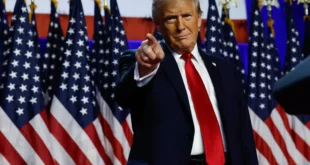The US is said to be mulling military options in Syria amid deadlock at the Security Council, but that would mean lighting the fuse for World War III
The UN Security Council meeting on Syria called over the weekend was bound to end in mutual recrimination between the US and Russia. With the two sides now well and truly locked into a cold war over the country, deadlock was a foregone conclusion. The Russians made it plain from the outset that they would veto the US-backed French resolution calling for a no-fly zone over Aleppo. And there was never any chance that the Russian counter-resolution – calling for a cease-fire but excluding terrorist groups and offering safe passage out of the city for rebel fighters – would not be blocked by the American and their British and French allies.
For them, the summoning of the Security Council into session was an opportunity to grandstand against Russia and rally support for their position rather than seriously try to reinstate the cease-fire in Aleppo or revive the floundering diplomatic process. Yet they ended up suffering two significant setbacks at the meeting which indicate that the US-led camp’s stance on Syria is losing rather gaining international support.
First, the Egyptian delegation voted in favour of both the French and Russian resolutions. The aim of this somewhat bizarre move was presumably to avoid angering the French. But it infuriated Saudi Arabia, as its UN representative Abdallah al-Muallemi made plain. This confirms that the growing rift between Egypt and Saudi Arabia is continuing to widen. Cairo is inexorably shifting away from the Saudi-led Gulf camp in the region and closer to the Russian-Syrian-Iranian alliance, particularly but not exclusively over Syria.
In the wake of last month’s meeting in New York between the Egyptian and Russian foreign ministers, Cairo has sent a new charge d’affaires to head its interests section at the Swiss embassy in Tehran, and there are reports that it is only a matter of time before the Egyptian embassy in the Iranian capital is formally reopened.
Secondly, China strongly supported the Russian resolution at the Security Council, and abstained in the vote on the French draft — further evidence that Beijing is increasingly aligning itself with Moscow on the international stage, over Syria and other issues too, and that the partnership between the two sides is becoming stronger and more solid. But that has little immediate bearing on developments on the ground in Syria.
With the failure of Security Council to revive the cease-fire agreement or achieve diplomatic progress, a military showdown in Aleppo seems unavoidable.
Russian and Syrian warplanes have resumed their bombing of armed Islamist insurgents led by the Fateh ash-Sham (formerly Nusra Front) with the same intensity as before the Security Council meeting, and the Syrian army has made significant advances in eastern Aleppo, retaking key locations in the process.
Russia is clearly in no mind to back down. It has sent more naval vessels and advanced anti-aircraft missiles to Syria, and unveiled plans to turn its navy supply facility at Tartous into a permanent base. It is continuing to pursue a strategy aimed at achieving the twin objectives of sustaining President Bashar al-Assad and his government in power and eliminating the extreme Islamist factions. Accordingly, it will not countenance any American or other bid to impose a no-fly zone over Aleppo or anywhere else.
Russia’s position is consistent and unchanged. But the same cannot be said for the US administration.
After first engaging in bilateral diplomacy to achieve a truce and peace process, then abruptly abandoning that option, it has for the time being resorted largely to rhetorical escalation against Russia. But there has been plenty of talk in American media and policy circles about other alternatives being considered.
Prior to the Security Council meeting, it was reported that President Obama and his National Security Council were actively engaged in reviewing a range of possible military options in Syria. These could include air or missile attacks on Syrian army positions or military and political command centres and infrastructure, perhaps even targeted strikes aimed at assassinating Assad or his military chiefs.
But this would be tantamount to lighting the fuse for World War III. Russia has stated explicitly that it will not tolerate any American airstrikes against the Syrian military and use its newly upgraded air defence systems to shoot down any intruding aircraft.
This cannot be disregarded by the US and its Western, Arab and Turkish allies who sponsored, bankrolled, supplied and manipulated the armed groups and encouraged them to believe they could achieve victory. That may have been what UN envoy Staffan de Mistura had in mind when he offered to personally accompany rebel fighters out of eastern Aleppo. Perhaps he knew that the time was approaching when they would be abandoned to their fate, along with the 200,000 long-suffering civilian inhabitants of the enclave they control.
Author: Abdel Bari Atwan
 Geostrategic Media Political Commentary, Analysis, Security, Defense
Geostrategic Media Political Commentary, Analysis, Security, Defense





